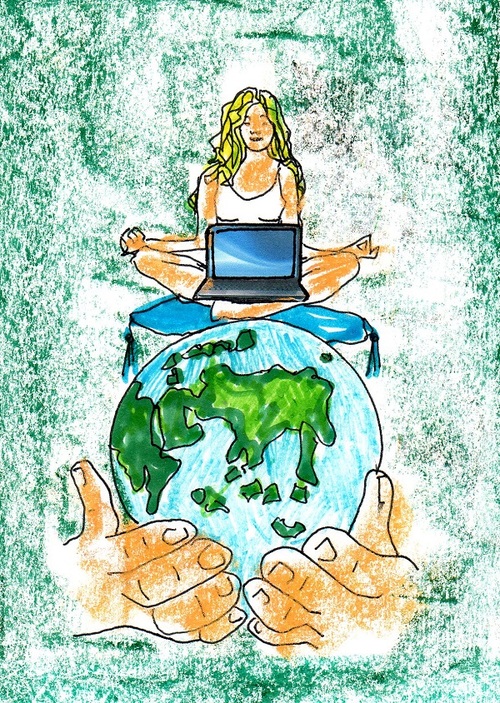
The future of work
Work as we know it traditionally is changing. And the big driving forces behind it are three in my opinion: 1) big data, 2) pervasive computing and 3) people’s innate desires to be liberated and in control of their own destiny
The last of course is not new, but technology and in particular the first two I mentioned are the catalysts of change that make it happen. But its important to note that technology doesn’t change our human nature; it just empowers it.
Pervasive computing is a concept that’s been around since the 90’s but its only really now with the consumerisation of smart-phones, and the massive data pool accessible in the cloud that it becomes reality
The sheer amount of information that the likes of Google, Facebook, Bing, LinkedIn and other aggregators of information hold, via our daily searches, posts, updates, emails – you name it – is frightening.
Will these companies rule our futures? I think not, but the data they pool together – our data- will. The mantra of the internet has shown to be ‘be open or die’. After all this is our data. Sharing data and information will grow with time as protectionism and privacy concerns will dwindle. The apps that are built and will be built on top of these data pools, their interconnectedness and mobility across an ever growing number of devices that are integrated with our daily lives – from desktops, laptops, smartphones, tablets, to now watches, glasses and more to come – will be the ones that game change.
In the context of working, I believe this will serve to make probably the largest market we know of today – the labour market – much more efficient and productive.
Think of a world where anyone’s time availability, skills relevance and availability will be matched to a given demand or need for work across borders in real time. However large or small. Thanks to Google, Wikipedia, Youtube information in different formats is already freely available. But information is an input not an output. Alone it doesn’t add zip to our GDP. It’s the processing of that information and its combustion into goods and services we all use that generates output.
We are still at the phase where we are organizing the worlds ever growing amount of information into more accessible formats and into our hands across many devices.
Application Programming Interfaces or APIs as they are known, Artificial Intelligence and progress in large data storage and processing, converge with advances in semiconductors and hardware computing which allow for a plethora of applications to be run on ubiquitous devices connected to the cloud.
Today, Google maps integrates with your Google calendar, which with things like Google Now and GPS on your Android device can proactively tell you that you should leave for your meeting right now. Soon that will be on your watch (designed by Apple maybe) and your Google Glasses. Next it will be on your gloves, or some other form of attire. You will be able to notify your friends or colleagues who are waiting for you without having to send them a text while driving or hailing a cab (a daily occurrence for me and I’m sure for many others).
So information for now is convenience, its engagement and social interaction. It’s an input into the production cycle. The real game changer will be when that input and output are coupled together and happen automated in real time.
The accessibility of services is one that particularly interests me in context of my company PeoplePerHour. I know we are serving a real cause – allowing people to access talent on demand for jobs and tasks that are much needed and increasingly so on the go with our iOS app and our upcoming Android App.
But I feel this is just the beginning. Much like if you need some information it sits somewhere in the cloud which today can be accessed, in the future if you need something done – however niche or specialized – there is someone somewhere in the world who can do it, at a price affordable to you, right now. The market is still not efficient enough to make that happen that readily.
I imagine a future where this vast talent pool is organized in a way which makes it accessible to you for whatever you need, wherever you are, and for whatever job. The interconnectedness of people and devices will unleash collaborative capabilities within that talent pool that will come together to solve tasks and problems of increasing complexity. And the system will learn and improve much like the world’s information gets more organized the more we use it.
Today our market still mostly works online, but it’s increasingly going mobile. In the future you may dictate what you want via your watch (for me this brings back childhood memories of Knight Rider which funnily enough was my favourite TV show growing up), which goes up in the cloud, gets processed, distributed and matched with available and relevant talent in the pool, and channeled back to you not as handy information but as a job done.
Imagine how much more efficiently the world would run? How much more productive and empowered people would be, while fulfilling that innate desire for humans to be in control of their destiny and their most valuable commodities: their time, intelligence and sweat.
Which is why it’d going to happen.

















Your email address will not be published.